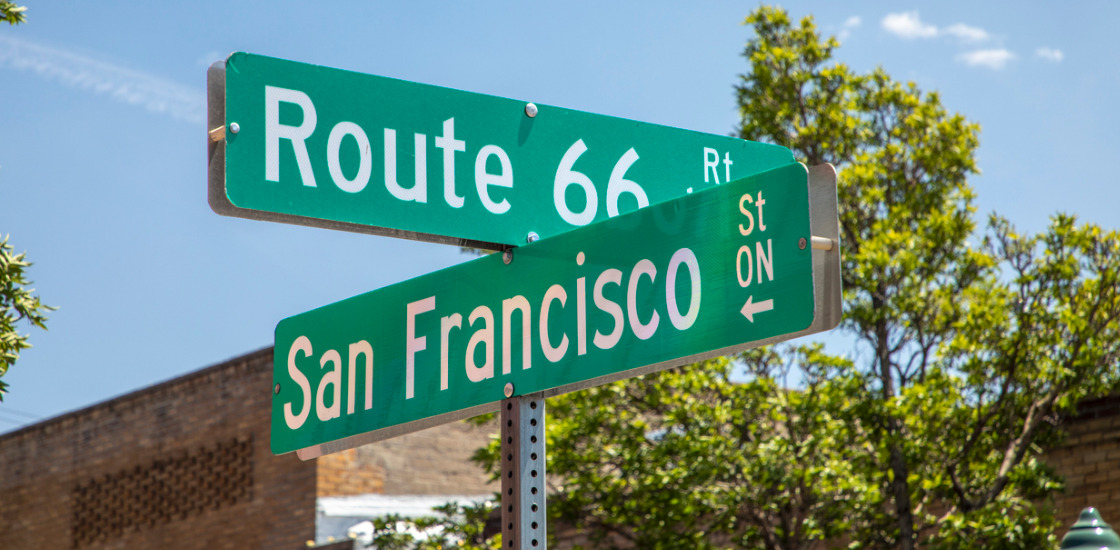Street names are more than just a way to identify the location of a business or residence – they can be functional (such as 74th Street predictably following 73rd Street), meaningful (like how Beach Street runs along, well, the beach), or reflect local history (like a street named after a town’s founder). So, what are the most popular choices for these names?
In this article, we’ll take a lighthearted look the most popular street names in the United States, and some of the conventions behind them. And perhaps more importantly, what these naming conventions might mean for your business’s customer contact data.
Fun facts about American street names
First, let’s look at what data from the US Census Bureau has to say about our most popular street names, based on a recent analysis of this data by the National League of Cities reported in auto blog Jalopnik:
By the numbers. What are the top four most common street names in America? All four are words that count, literally: namely, Second (with 10,866 streets in the US), Third (10,131), First (9,898) and Fourth (9,190). So, what is the fifth most common street name? If you follow the math, you might guess it was Fifth, but no – it’s Park (with 8,926 streets).
(By the way, why isn’t First first? Because, according to AAA, many cities refer to their first or most central street as Main Street. After all, when was the last time you heard a politician talk about “helping businesses on First Street”?)
It’s good to be famous – or a tree. Many streets are named after people, but the most popular one in the US – Washington – clocks in at #17. Trees are well represented on the other hand, with fully one-third of the top 15 going to names like Oak, Pine, Cedar, Maple and Elm (the latter of which even inspired the movie title Nightmare on Elm Street.)
California’s nod to history. California often names streets (as well as its cities) after Catholic saints, usually in Spanish, such as San Jose (Saint Joseph) and San Miguel (Saint Michael). Its street names also frequently reflect the influence of its early Spanish explorers, either in name (such as De Anza Boulevard in Cupertino, after explorer Juan Bautista de Anza) or culture (such as San Jose’s main drag El Camino Real, translating to “The Royal Road”).
Two for the price of one. Some places give two names to a roadway, such as Manhattan’s 6th Avenue/Avenue of the Americas, and Worth Street/the Avenue of the Strongest. These second names sometimes also honor people – for example, the main street of the upstate New York college town of Ithaca, NY goes interchangeably by its original name of State Street or its more recent designation as Martin Luther King Junior Road.
What this means for you
So, what does this have to do with your business – and with Service Objects? Well, first of all, we think addresses are pretty cool – we’re just that way. (After all, we’ve validated five billion or so of them since the company was founded.) But there is another lesson here that is important for your business – the difference between a common address and a validated one.
You see, familiarity breeds contempt. And data errors. And missed deliveries. And higher costs and unhappy customers. Because when names are too common, people sometimes substitute these common names for the correct ones, leading to data errors.
For example, “Mont Vernon Road” is a real road (and town) in New Hampshire. How often do people enter this on autopilot as Mount Vernon? And think about the fifth most popular street name in America, Park – this popularity isn’t always a blessing if you live on Parke Street in suburban Pittsburgh. This is one reason it is important to validate contact addresses, to ensure they are accurate, genuine, and up-to-date.
The same logic applies to less-popular street names. For example, how many people will spell “Zzyzx Road” (another real road, in California) incorrectly? Or know to leave the “g” out of equally real Puddin’ Ridge Road in North Carolina? And beyond spelling errors, there is always the risk of bad ZIP codes, wrong municipalities, formatting errors and more in your contact database.
Service Objects’ flagship DOTS Address Validation suite verifies, corrects, and appends addresses in real time, using up-to-date data from USPS or postal authorities in over 250 countries worldwide.
Contact us for more information or a free demonstration, and learn how we can help make ALL of your contact addresses popular ones!













